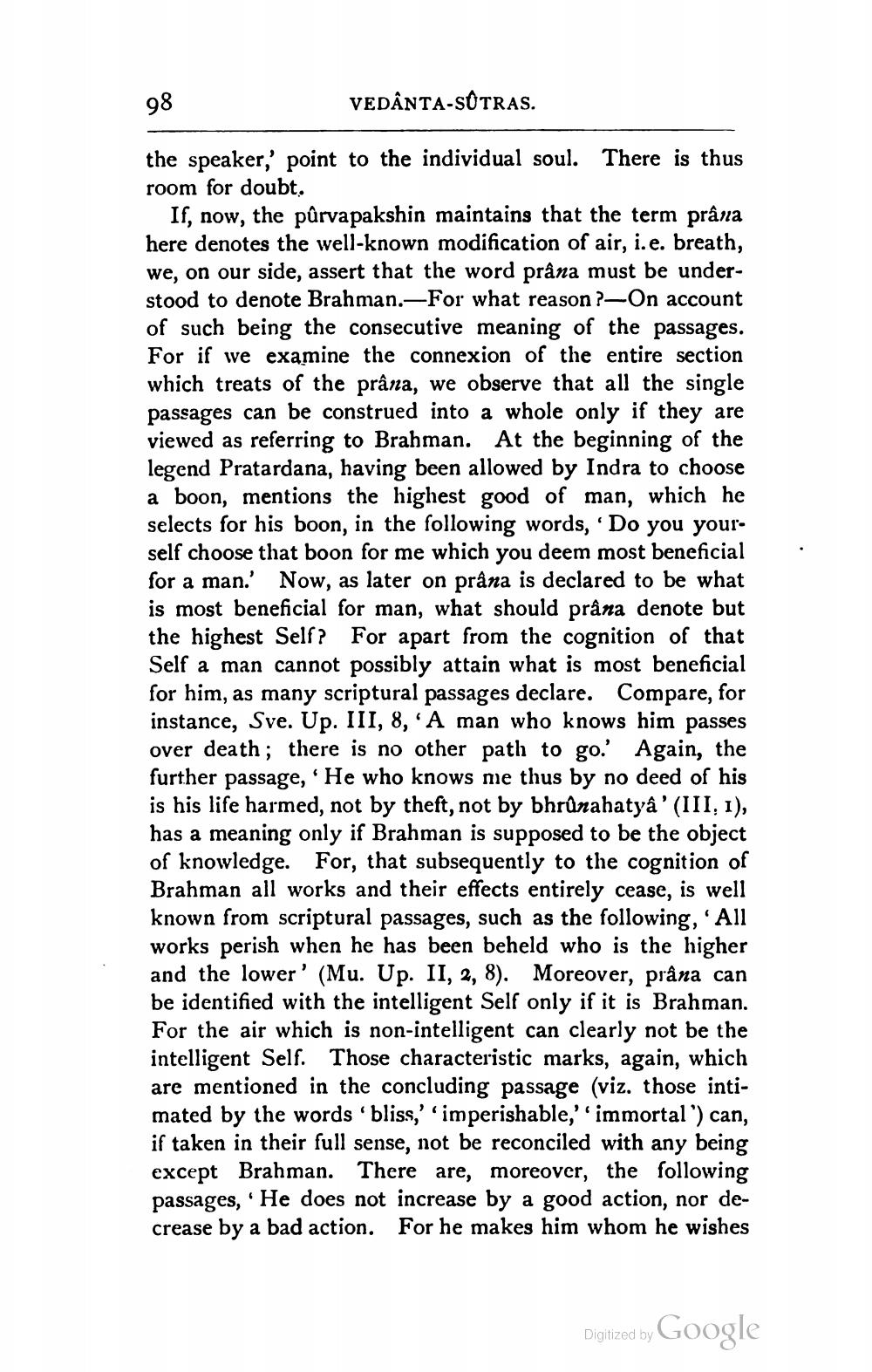________________
98
VEDÂNTA-SOTRAS.
the speaker,' point to the individual soul. There is thus room for doubt.
If, now, the purvapakshin maintains that the term prâna here denotes the well-known modification of air, i.e. breath, we, on our side, assert that the word prâna must be understood to denote Brahman.-For what reason ?-On account of such being the consecutive meaning of the passages. For if we examine the connexion of the entire section which treats of the prâna, we observe that all the single passages can be construed into a whole only if they are viewed as referring to Brahman. At the beginning of the legend Pratardana, having been allowed by Indra to choose a boon, mentions the highest good of man, which he selects for his boon, in the following words, 'Do you yourself choose that boon for me which you deem most beneficial for a man. Now, as later on prâna is declared to be what is most beneficial for man, what should prâna denote but the highest Self? For apart from the cognition of that Self a man cannot possibly attain what is most beneficial for him, as many scriptural passages declare. Compare, for instance, Sve. Up. III, 8, A man who knows him passes over death; there is no other path to go.' Again, the further passage, 'He who knows me thus by no deed of his is his life harmed, not by theft, not by bhrunahatya'(III. 1), has a meaning only if Brahman is supposed to be the object of knowledge. For, that subsequently to the cognition of Brahman all works and their effects entirely cease, is well known from scriptural passages, such as the following, 'All works perish when he has been beheld who is the higher and the lower' (Mu. Up. II, 2, 8). Moreover, prâna can be identified with the intelligent Self only if it is Brahman. For the air which is non-intelligent can clearly not be the intelligent Self. Those characteristic marks, again, which are mentioned in the concluding passage (viz. those intimated by the words 'bliss,' imperishable,' immortal') can, if taken in their full sense, not be reconciled with any being except Brahman. There are, moreover, the following passages, 'He does not increase by a good action, nor decrease by a bad action. For he makes him whom he wishes
Digitized by
Digized by Google




